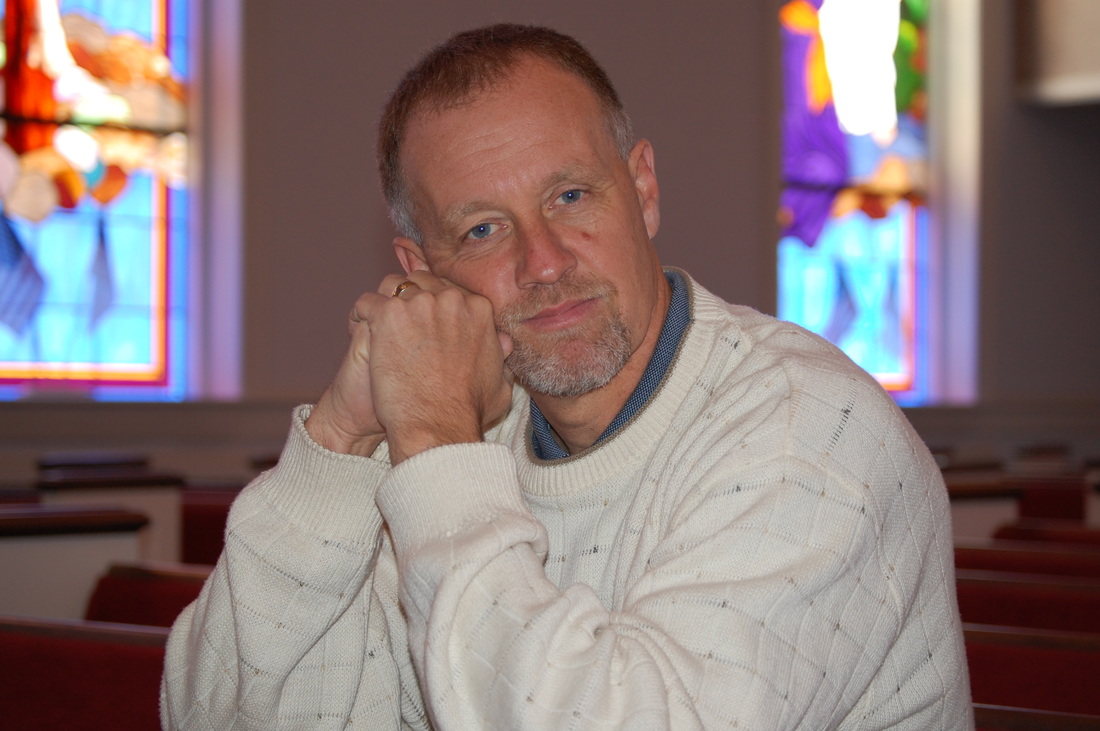 Let the ADVENT-SURE begin: HOPE. Jeremiah 33:14 The days are surely coming, says the LORD, when I will fulfill the promise I made to the house of Israel and the house of Judah. In those days and at that time I will cause a righteous Branch to spring up for David; and he shall execute justice and righteousness in the land. In those days Judah will be saved and Jerusalem will live in safety. And this is the name by which it will be called: "The LORD is our righteousness." It’s the first Sunday of Advent and our theme is Hope. The liturgical season of Advent marks the time of spiritual preparation by the faithful before Christmas. Advent begins on the Sunday closest to the Feast of St. Andrew the Apostle (November 30). It spans four Sundays and four weeks of preparation, although the last week of Advent is usually truncated because of when Christmas falls. (For instance, some years, the fourth Sunday of Advent is obviously on Sunday, and then that evening is Christmas Eve.) The celebration of Advent has evolved in the spiritual life of the Church. The historical origins of Advent are hard to determine with great precision. In its earliest form, beginning in France, Advent was a period of preparation for the Feast of the Epiphany, a day when converts were baptized; so the Advent preparation was very similar to Lent with an emphasis on prayer and fasting which lasted three weeks and later was expanded to 40 days. In 380, the local Council of Saragossa, Spain, established a three-week fast before Epiphany. Inspired by the Lenten regulations, the local Council of Macon, France, in 581 designated that from November 11 (the Feast of St. Martin of Tours) until Christmas fasting would be required on Monday, Wednesday, and Friday. Eventually, similar practices spread to England. In Rome, the Advent preparation did not appear until the sixth century, and was viewed as a preparation for Christmas with less of a penitential bent. The Church gradually formalized the celebration of Advent as a period of spiritual preparation for Christmas. The Gelasian Sacramentary, traditionally attributed to Pope St. Gelasius I (d. 496), was the first to provide Advent liturgies for five Sundays. Later, Pope St. Gregory I (d. 604) enhanced these liturgies composing prayers, antiphons, readings, and responses. Pope St. Gregory VII (d. 1095) later reduced the number of Sundays in Advent to four. Finally, about the ninth century, the Church designated the first Sunday of Advent as the beginning of the Church year. Despite the “sketchy” history behind Advent, the importance of this season remains to focus on the coming of our Lord. (The word Advent comes from the Latin adventus, meaning “coming.”) The theme of the first week in Advent is HOPE. Definition: 1. 1. a feeling of expectation and desire for a certain thing to happen. "he looked through her belongings in the hope of coming across some information" 2. 2. a feeling of trust. The New Testament word for hope is Elpise: (GREEK) To anticipate usually with pleasure or confidence. (from a prism) (Romans 15:13) The word ‘hope’ in Hebrew actually means ‘to expect’ or have some sort of ‘expectation’. This means we aren’t merely hoping it to be completely. We’re 100% expecting it to be completed. There should be no doubt anywhere in our mind concerning the Lord’s promises to us. So, you can see how closely the Advent theme and the HOPE theme are to one another. “Hope” is commonly used to mean a wish : its strength is the strength of the person's desire. But in the Bible hope is the confident expectation of what God has promised and its strength is in His faithfulness. Remember that HOPE is eternal. It will exist forever because HOPE is God. “And now these three remain: faith, hope and love. But the greatest of these is love.” 1Cor 13:13 Hope looks to the future. (You don’t hope for what you already have. You have the faith to believe you have what you need. Biblical hope is not wishy-washy. Biblical hope is neither wishful thinking nor a mere desire for something we’d like to have happen. Instead, the Bible consistently presents hope as a confident expectation, an assuredness about what is to happen in the future, and even an anticipation of that future Today, we look at one of the more recognizable prophecies concerning the coming of a Messiah, a thing which was the central hope of all Jewish people. Scholars differ on how many Messianic prophecies there are in the OT. (56-560) The oldest messianic prophecy is Gen 3:15 or Job 19: 25-27. These prophecies of a coming Messiah were central to the hope of Israel. Remember that Abraham’ hope was in a place. (Genesis 17) Generally, The roots of Jewish eschatology are to be found in the pre-exile prophets, including Isaiah where they occur in at least five chapters. Their “HOPE” in a Messiah in included the following tenants: · End of world (before everything as follows). · God redeems the Jewish people from the captivity that began during the Babylonian Exile. · God returns the Jewish people to the promised land of Israel. · God restores the house/line of David and the temple. · The Jewish Messiah will usher in an age of justice and peace. · All nations recognize that the God of Israel is the one true God. · God resurrects he dead · God creates a new Heaven and earth. The prophecy comes from Isaiah 40: 1-6. Isaiah 40. Isaiah received his call to prophecy from God in Isaiah 6 around 750BC. Assyria is the formidable enemy. Ahaz, Judah’s king, seeks to form an alliance with Assyria. He literally ‘puts his hope’ in the hands of his enemy. This is the backdrop of the first 39 chapters of the book. After Ahaz dies, Hezekiah becomes king and seeks the Lord for protection from enemies. Because Hezekiah puts his home in God alone, Judah is spared from being conquered by the Assyrians. Hezekiah’s HOPE in God saved his people. He did not put his hope in chariots or men or weapons. This is a common theme in obeying God. (Psalm 20:7; Isaiah 30:2-5) David experienced a similar fate when he counted his fighting men. (2 Samuel 24) Solomon wrote about putting your hope in anything other than God in Ecclesiastes. His quest led him to discover that life was meaningless apart from God. At the end of his days, he reminded those who followed him to ‘remember God when they are young’ and ‘fear God and keep his commandments’. These are paramount teachings in living a hopeful life. And so, after affirming that Judah would be spared from the Assyrians, Isaiah turns the page to chapter 40 and looks to the future of Israel, in what would happen in about 50 years. They would fall away yet again and this time their sins would require restitution in the form of exile. After 70 years, they’re sins would be forgiven and they could return once again to the ‘place’ of their hope. With this in mind, he says: Comfort, comfort my people, says your God. 2 Speak tenderly to Jerusalem, and proclaim to her that her hard service has been completed, that her sin has been paid for, that she has received from the Lord’s hand double for all her sins. 3 A voice of one calling: In the wilderness prepare the way for the Lord[a]; make straight in the desert a highway for our God.[b] 4 Every valley shall be raised up, every mountain and hill made low; the rough ground shall become level, the rugged places a plain. 5 And the glory of the Lord will be revealed, and all people will see it together. For the mouth of the Lord has spoken.” These words of HOPE that Handel captured so magically in his master work, “The Messiah” start with the word, “COMFORT”; not once but twice. It was the biblical equivalent of italics or bold letter writing. A word repeated twice in scripture always represented a greater emphasis to the word. Hope will bring comfort. True hope like this is life-changing. It is a sure hope in God. It is a strong confidence in Christ and His Words. Redemption will always be accomplished and completed according to the Word of the Lord. And we know how the story ends. Putting your hope in anything else will only disappoint you. This is the hope that allows us to face the trials and testings we must endure as recorded in Romans 5: 3-5 Are you hopeful? How are you tying in HOPE to your advent this year? Psalms are generally categorized by content. In the Psalms of Lament, there is always a crying out to God . But the psalm never ends without a hope. One of my favorite is Psalm 42. It ends like this: Why, my soul, are you downcast? Why so disturbed within me? Put your hope in God, for I will yet praise him, my Savior and my God. God never leaves his people without a HOPE. Hope is eternal like the soul of the believer. Hope should accompany us now as it will in heaven. Whatever you’re hoping for this advent, hope for it in light of God’s promises. All else will fail. Only God’s Word will stand. I’m reminded of the words to the wonderful hymn, “On Christ the Solid Rock I Stand” My hope is built on nothing less Than Jesus' blood and righteousness I dare not trust the sweetest frame But wholly lean on Jesus' Name On Christ the solid Rock I stand All other ground is sinking sand All other ground is sinking sand When darkness seems to hide His face I rest on His unchanging grace In every high and stormy gale My anchor holds within the veil His oath, His covenant, His blood Support me in the whelming flood When all around my soul gives way He then is all my Hope and Stay When He shall come with trumpet sound Oh may I then in Him be found Dressed in His righteousness alone Faultless to stand before the throne Romans 13:15, “May the God of HOPE fill you with JOY and PEACE as you TRUST IN HIM, so that you may overflow with HOPE in the power of the Holy Spirit. Let the ADVENT-sure Begin.
0 Comments
Leave a Reply. |
Author
Archives
August 2023
|
